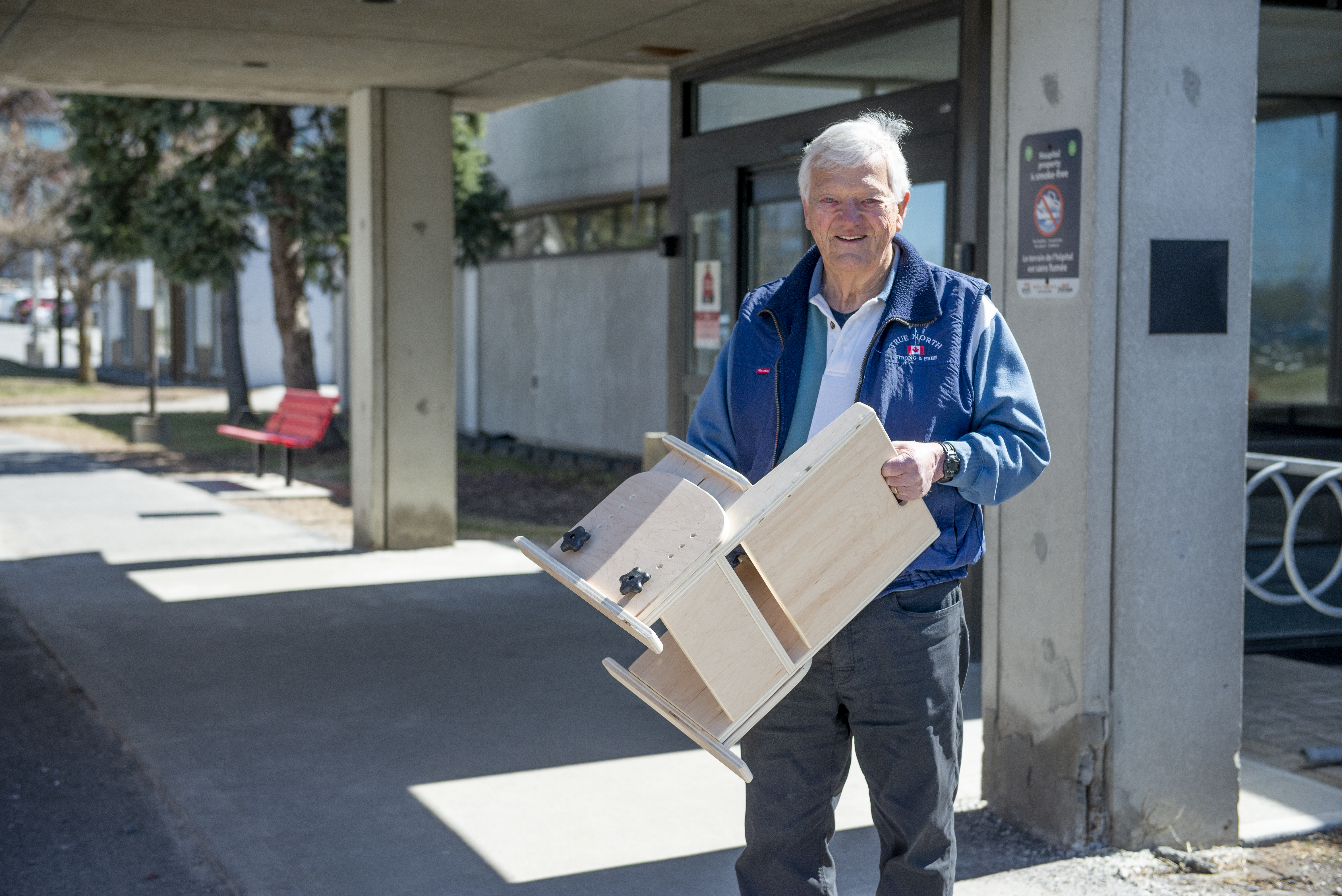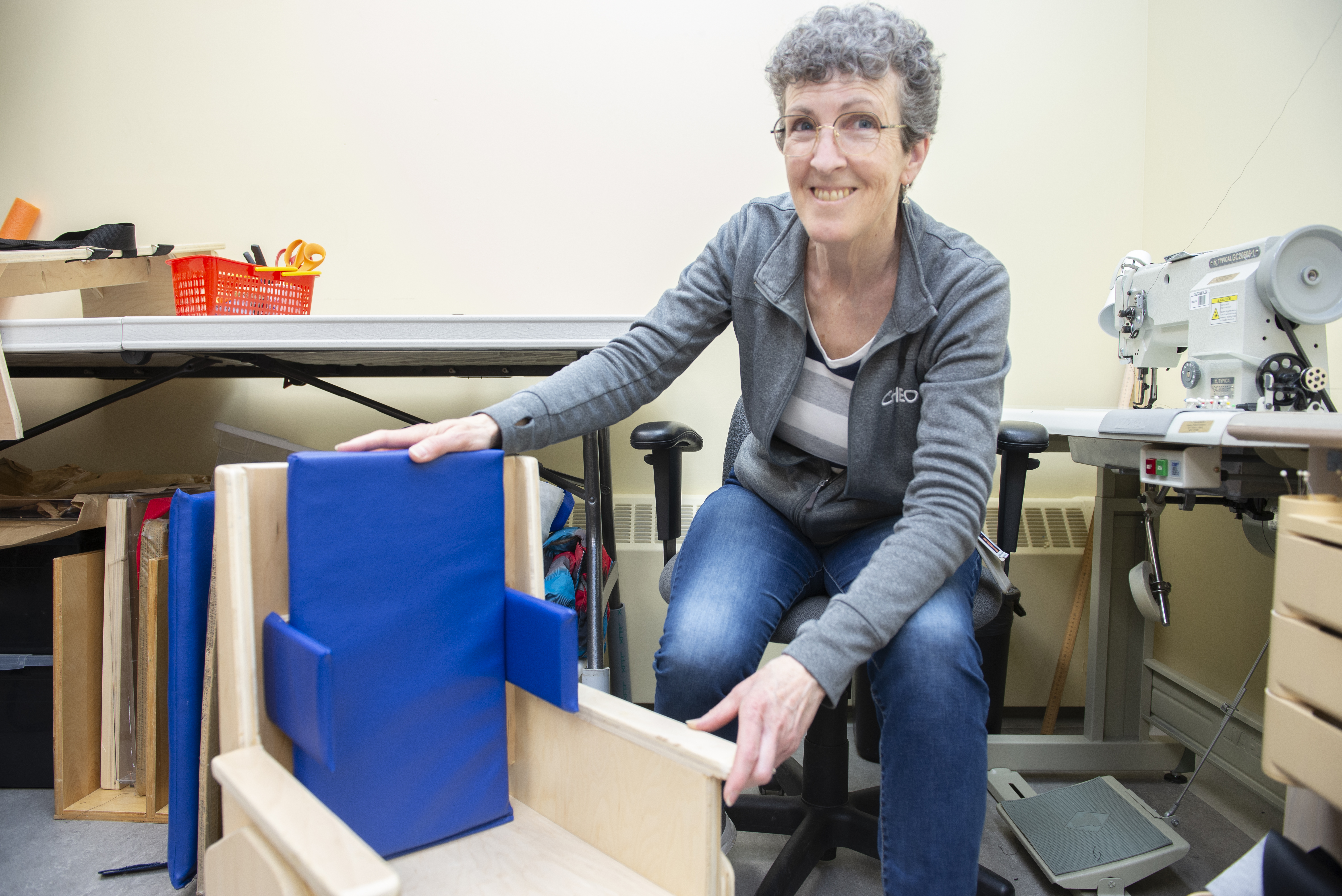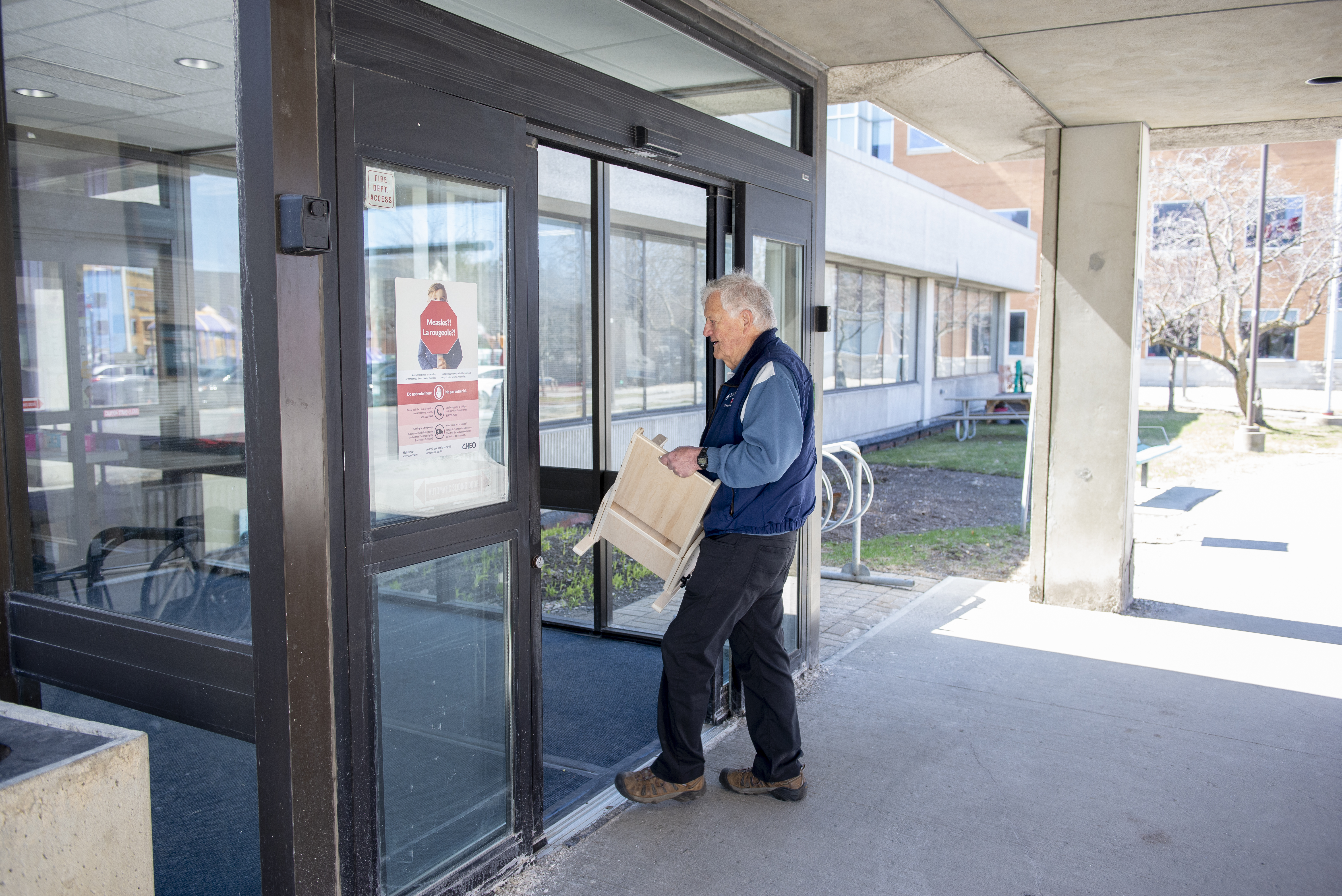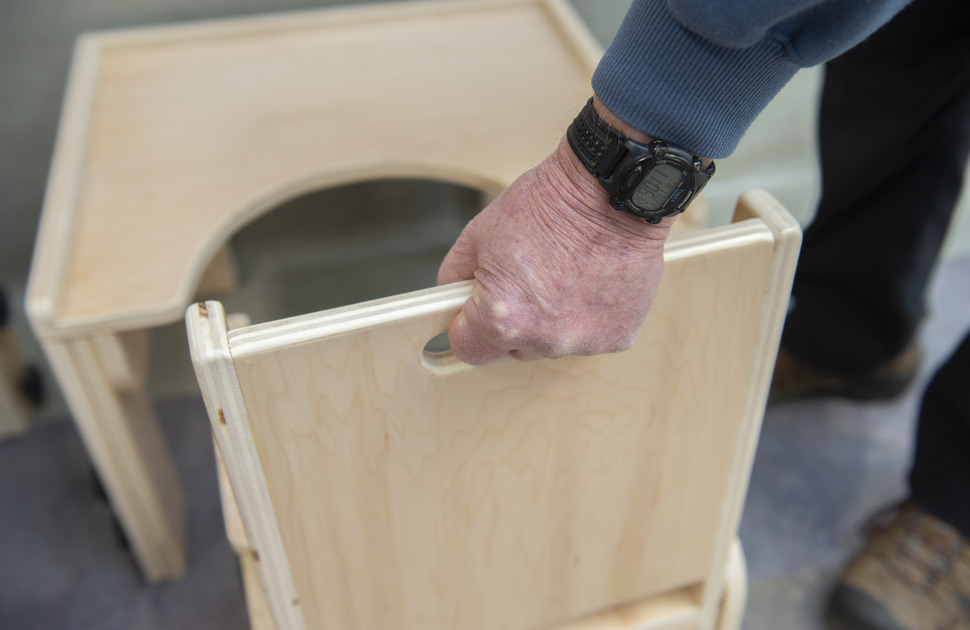
In workshops across Ottawa and the surrounding region, 13 dedicated woodworking volunteers are hard at work—crafting customized therapy equipment for children in CHEO’s Children’s Treatment Centre (CTC). They build in their own time, from garages and basements, transforming raw materials into tools that help kids gain comfort, mobility and independence.
This unique program, supported by a specialized fund in partnership with the CHEO Foundation, ensures each piece of equipment is made specifically for a child’s individual needs, as prescribed by their physiotherapist or occupational therapist. Whether it’s a tricycle foot pedal adapter or a custom cut-out table for improved posture and positioning, every build is both functional and personal.
Don Taylor, a retired research engineer and long-time volunteer, has been a CHEO woodworker volunteer since 2008, contributing more than 1,700 volunteer hours.
“I’ve completed 122 projects so far,” he said. “Some are simple benches or laterals, others are more involved—tables, chairs, corner seats.”

From basement to breakthroughs
Don builds from his basement shop in Ottawa, carefully planning each project.
“My house has a fine film of dust at all times,” he joked.
Once built, Don delivers the equipment to CHEO, where Development and Rehabilitation staff take over for the final touches. That includes sewing cushions, pads, or belts that are later fastened with Velcro or hardware. Sandy Schafer, a rehabilitation assistant who’s been at CHEO for a combined total of about 20 years, is part of the small but mighty sewing team that brings these builds to life.

Some of the equipment, like chairs with lateral supports or lap belts, are designed for children with lower muscle tone or physical conditions that make these supports beneficial to their alignment, comfort and function when seated.
“If they’re having to work really hard at staying upright then they don’t have as much energy to use their hands and arms to do their schoolwork or play,” said Sandy.
“These supports help to keep them in an optimal position so that they can better focus on what they are doing.”
Other woodworking creations include adapted easels painted black to provide visual contrast for children with visual impairments, or prone and vertical standers that facilitate standing and weight bearing for children who benefit from this support.
Built to give back
From trike pedal adapters to custom tables and supportive seating, CHEO’s woodworking volunteers are on track to build approximately 150 pieces of equipment this year – up from 130 last year.
When building a piece of furniture, Don said safety and comfort are top priorities.
“The one thing that is important is to make sure that anything that has contact with skin is smooth and has rounded corners so that if somebody is flailing a bit, they're not going to hurt themselves on it. I spend quite a lot of time making sure everything is very smooth.”

While most woodworker volunteers don’t meet the children who use their creations, the impact is felt when they receive thank you cards from families.
“It’s rewarding work. You’re doing something useful, something that’s valued,” he said.
Before retirement, Don worked on steel mill design, then 33 years at the National Research Council on research and later, team management. Now in his 80s, Don limits his time in the shop to about an hour or two a day. When he’s not in his workshop, he’s either spending time with his wife or cycling with his bike club, often logging rides of 50 kilometers or more.
“I plan to keep on going as long as I can,” he said. “When you retire, it’s nice to feel like you’re contributing to something bigger than yourself.”





